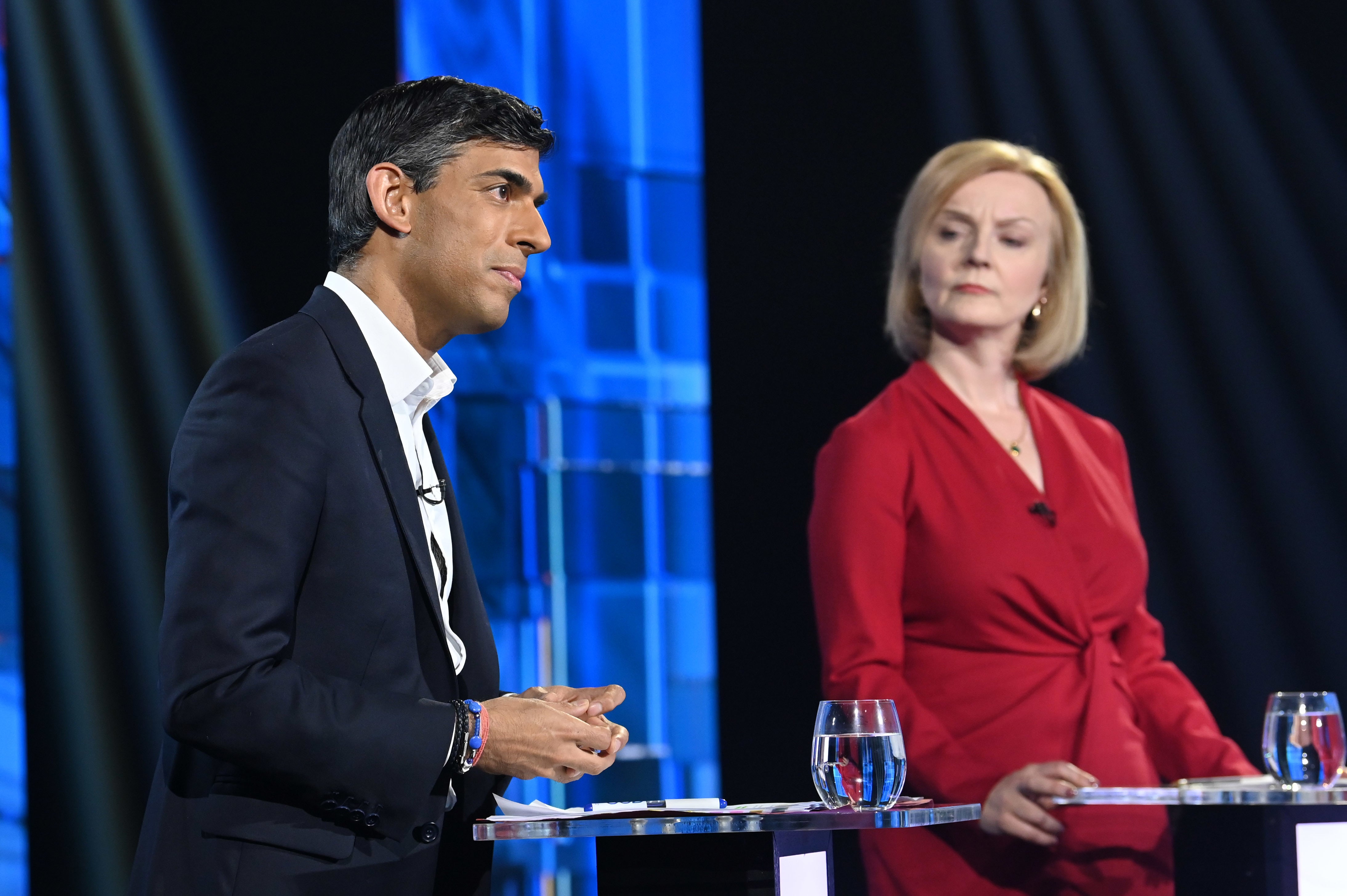Pulling the next Tory leadership TV debate is a huge mistake
The debate should not be limited to meetings behind closed doors in stuffy committee rooms at Westminster


Just as Sky News invited journalists to its “spin room” and laid on transport to its West London studios for tomorrow night’s Tory leadership debate, Rishi Sunak and Liz Truss pulled the plug on it by refusing to attend. Sky duly announced it has been cancelled.
It’s a pity – it does a disservice to democracy. True, the three contenders remaining by the time of the debate are running in an internal election rather than asking to run the country (yet). But the rest of us deserve a look in. The debate should not be limited to meetings behind closed doors in stuffy committee rooms at Westminster.
It is healthy and instructive for Tory MPs and party members to see how the candidates perform under scrutiny and in the heat of the sort of battle the winner will face at the 2024 general election.
The Sunak and Truss camps want to focus on the final hustings meeting for Tory MPs, who on Wednesday will choose the shortlist of two to go into a ballot for the party’s grassroots members. Their campaign teams believe the increasingly bruising blue-on-blue attacks in the two TV debates so far have inflicted too much damage to the Tory brand. “Why are we doing this?” Sunak is said to have asked Truss at the close of Friday’s Channel 4 debate.
Yet that didn’t prevent fierce exchanges between the pair during last night’s even more feisty ITV debate. The former chancellor accused the foreign secretary of backing “socialist” tax and spend policies and pointedly asked her what she regretted most – once being a Liberal Democrat member or voting Remain in the 2016 referendum? Ouch. Truss returned fire, warning that Sunak’s policies have put the UK on the road to recession.
Their decision to scupper the final TV debate at this stage will be seen as a stitch-up by their rivals. The debates handed an opportunity to the outsiders Kemi Badenoch and Tom Tugendhat and they grabbed it.
In contrast, I suspect the two programmes slowed the Penny Mordaunt bandwagon; she appeared vague on detail and reminded Tory members they would be taking a huge gamble by making her prime minister. Truss performed poorly on Friday but bounced back a bit last night.
I am surprised Sunak does not want tomorrow’s event to go ahead as I judged him the strongest performer in both debates. His team says it will be “very happy” to do more debates if he makes the shoot-out.
It is true that senior Tory MPs have become increasingly alarmed that the real winner from the debates is their Labour enemy. The attacks on the government’s record, even by some who were ministers in it, have been carefully stored by Labour and will provide powerful ammunition when the election comes.
Apart from the widening Tory gulf over tax cuts, we have seen some disastrously timed scepticism about “net zero” and Sunak being accused of ignoring warnings about fraud in loans for business during the pandemic.
The battle is so bitter that Labour has been leaked damaging information on some candidates by rival camps, so that any passed on to journalists comes from Labour rather than Tory hands. “Some of it is eye-popping,” one shadow cabinet member told me.
But the decision to pull out of the Sky debate comes very late in the day. Arguably, the damage has already been done, especially after last night’s debate got so personal. Labour has got more than enough in its election locker.
Disputes over TV debates are nothing new. The UK was slow to adopt a format that began in the US presidential election of 1960. There were several false starts, with the UK prime minister usually reluctant to put the opposition leader on an equal pedestal, before the parties finally signed up to leaders’ debates in 2010 (Nick Clegg was the breakout star. Lesson: a new face does well).
To keep up to speed with all the latest opinions and comment sign up to our free weekly Voices Dispatches newsletter by clicking here
But the rules are that there are no rules and so – surprise, surprise – our parties take decisions out of self-interest.
In 2019, there were two head-to-head debates between Boris Johnson and Jeremy Corbyn. But Johnson showed his penchant for ignoring the rules by dodging a BBC interview with Andrew Neil after Corbyn suffered a 30-minute mauling on the understanding that Johnson would also be quizzed by Neil.
It would be better to set up an independent commission or allow the broadcast regulator Ofcom to put debates on a statutory footing so the parties cannot pick and choose what suits them. Leaders who refuse to attend should be empty-chaired. There is also a case for such a body to at least be consulted on party leadership elections, though the Tories would probably resist such interference.
There is plenty of polling evidence that TV debates boost voter engagement in politics – crucially, among younger people. The politicians must surely be in favour of that.
Join our commenting forum
Join thought-provoking conversations, follow other Independent readers and see their replies
Comments
Bookmark popover
Removed from bookmarks